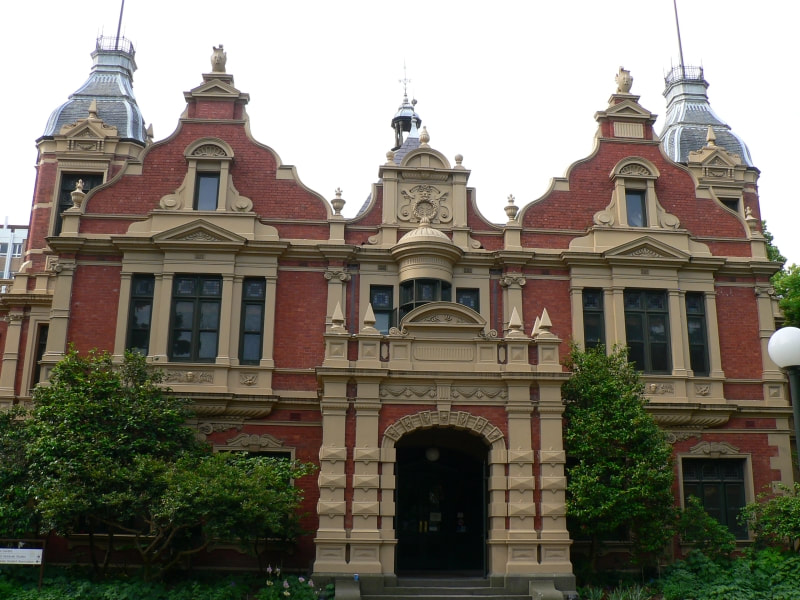|
Issue 9, Volume 17 JEREMY WAITE Late last year, the University of Melbourne Graduate Student Association (GSA) embarked on a process of constitutional reform. For the unacquainted, the GSA is the peak representative body for graduate students at the University of Melbourne. You may be familiar with some of our long running advocacy campaigns on issues like transport concessions for postgraduate students, WAM adjustments for Semester 1 or stipend extensions for graduate researchers during the current COVID-19 pandemic. If you’re a law student, you are likely to recognise us as the body which helps fund many of our law student groups including the LSS, MLMSA, GLSA, Later Law Students’ Network, VELSN, FAME, PILN and more – including this very newspaper. However, there is more we can do to give Melbourne Law School students a seat at the table. That representation starts with reforming our governance structure.
Hang on – GSA reforming its constitution sounds vaguely familiar If GSA proposing changes to its constitution sounds familiar, you’re right – the GSA attempted to change its constitution in 2018, but for good reason, these ill-fated changes were widely rejected by students at the SGM. In a nutshell, the 2018 proposed constitution would have weakened requirements for the representation of women, taken considerable control away from students and allowed the University to appoint its own staff to positions within the GSA. As articulated perfectly in De Minimis in 2018: “No effective union gives the people it’s fighting a seat at the table in working out who runs it.” All of these criticisms were featured in both De Minimis and Farrago in 2018, and should be at the forefront of our minds when approaching reform this time around, especially in 2020 at a time when, more than ever, students need strong, representative student unionism in both the GSA and in UMSU. While I am sure the GSA Council at the time approached it with the best intentions, they simply got it very wrong in the end, and it’s up to us to learn from these mistakes. https://www.deminimis.com.au/home/response-a-tale-of-two-constitutions-is-just-a-tale http://farragomagazine.com/2018/03/25/gsa-reforms-fail-to-pass-at-sgm/ Why does the GSA need to reform its constitution? If you’re anything like me before I got involved in GSA, you may be aware of GSA’s existence, but might not directly engage with it. A major priority for me and other councillors has been to open the GSA up to make sure students from under-represented faculties like MLS can be involved, and working with the current GSA Council, these efforts have culminated in this proposed constitution. The three largest of the proposed changes are: 1. Increased student involvement Currently, GSA Council is made up of 15 elected students responsible for everything from reading financial reports, negotiating EBAs, sitting on committees, running campaigns, regulatory compliance, risk, representing our faculties, as well as all the legal responsibilities held by board members. Under the current model, students can only run for general positions and the portfolios are allocated to, and dependent on, who is elected. For example, if no LGBTIQ+ identifying students are elected, then this portfolio won’t exist on the council. In a welcome departure from this model, the new model creates a separate, elected Representative Council where students can run for certain portfolios like Women, Indigenous, LGBTIQ+, International, Families, like in the yearly LSS elections, which will greatly improve and better guarantee GSA’s representation of these groups. 2. Guaranteed Faculty representation Looking at the current makeup of GSA Council, representation is skewed towards certain degrees, and often for good reason – for example, public policy students have a wealth of skills and passion for policy and governance. However, this model does not provide strong representation across every graduate school at the University. For example, there is currently only one MLS student on GSA Council, that being myself, and students from VCA, MSD, Veterinary and Agricultural Sciences are even worse off – being seldom represented on council by virtue of having fewer students and therefore voters. The new constitution would mandate the establishment of a GSA Faculty Council, which would have guaranteed representation for students from each and every graduate school at the University. This would enable students across the University to have a voice within GSA and in our advocacy to the University. Through this mechanism, GSA would also be further empowered to support the strong student-led advocacy already happening within faculties like MLS. 3. Strengthened, yet student-led governance As mentioned earlier, under the current model, councillors have to balance governance with advocacy, and sometimes at the expense of one another. The new model would instead have an eight-person GSA Board which would be dedicated to governance, risk, policy and finance while allowing those in the Representative Council to solely focus on representation. The GSA Board would, unlike the 2018 proposals, consist solely of graduate students, actually guarantee the representation of women in line with the Equal Opportunity Act 2010 (Vic), and bring the GSA into full compliance with the Associations Incorporation Reform Act 2012 (Vic). Ultimately, it is vital that this constitution reflects the needs and concerns of students, and in particular law students who understand the importance of it as a legal document, and as a mechanism for good governance, accountability and representation. If you have any thoughts, feelings or concerns you would like to see incorporated into this constitution please don’t hesitate to contact me directly at [email protected] You can find the proposed constitution in full at this link; because we all know that law students could really do with the extra reading. Jeremy Waite is the GSA Activities Officer, and a second-year JD student. Comments are closed.
|
Archives
October 2022
|



